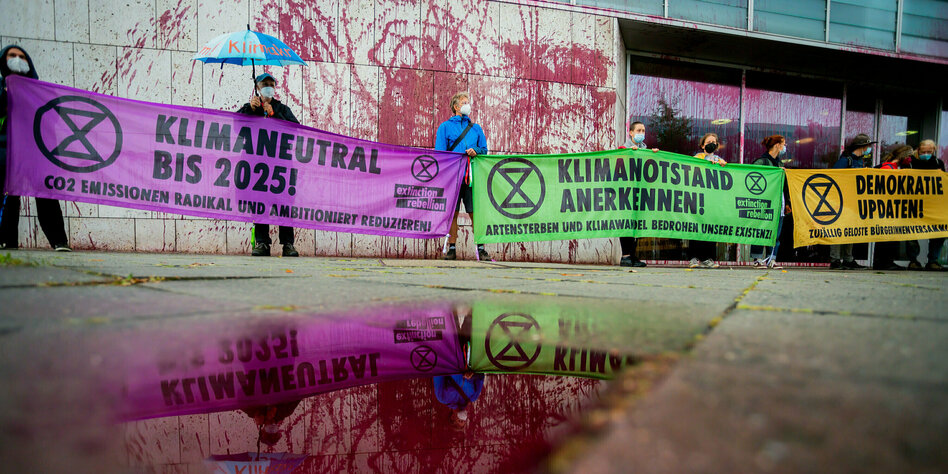COVID-19 turned Vietnam’s state-run Union’s greatest weakness into its biggest strength
The Vietnam General Confederation of Labor may be unable to fight for workers’ rights, but it is well-placed to help them amid the COVID-19 crisis.
The state-led Vietnam General Confederation of Labor (VGCL) is Vietnam’s only legal trade union federation. It is subordinate to the ruling Communist Party, embedded in the structures of the party-state, and receives a lot of funding from it. Government leaders often make speeches reinforcing how committed they are to strengthening the VGCL and reminding people that the Confederation is an arm of the state. You will find a union office, staffed by full-time officials, at almost every level of Vietnam’s administration, from the impressive and imposing national headquarters on Hanoi’s Quan Su street down to modest and charming ward and district-level offices throughout the country. In individual companies, union reps are often human resource managers or similar.
Due to this, the VGCL has been heavily, and often rightly, criticized for being unable to represent and struggle for workers properly. The VGCL has never organized a strike, for example, and often serves as a channel to inform workers of government and company policies rather than to challenge them.
There was a period, at the beginning of the 2010s, when the VGCL seemed committed to reform. Progressives were in influential positions – including the president from 2011-2016, Dang Ngọc Tung, who had spent his whole working life in the union – and there were serious discussions and experiments with how to represent and campaign for workers more effectively. Nearly 1,000 wildcat strikes in 2011, all self-organized by workers and none led by the VGCL, also created substantial pressure for reform, as did negotiations over the Trans-Pacific Partnership (TPP) trade deal.
Now, however, that space has tightened, and the VGCL has been pulled further back into the Communist Party’s orbit. Those on the progressive wing of the Confederation have been side-lined. The current VGCL president, Nguyen Dinh Khang, does not have a labor background, but spent years managing state-owned enterprises. The one before him, Bui Van Cưong, who was president from 2016-2019, was also a party apparatchik who had held various political positions; he now has an influential role as secretary general of the National Assembly. The labor press – newspapers belonging to the VGCL that had carved out some autonomy to report sympathetically on strikes and working conditions – has also been reined in. Ownership of one of the major labor papers, Nguoi Lao dong (Laborer), has shifted from the VGCL to the Ho Chi Minh City Party Committee.
In addition, pressure for reform from trade deals has significantly reduced. The Trump administration withdrew from the TPP in 2017. It was replaced by the Comprehensive and Progressive Agreement for Trans-Pacific Partnership (CPTPP), which had weaker labor requirements. The EU-Vietnam Free Trade Deal (EVFTA) was similar. After both had been signed, any immediate reform pressures faded away. The 2019 Labor Code, which came into force in January this year, contains some limited Freedom of Association reforms, but these are unlikely to lead to major changes.
The VGCL and COVID-19
It is precisely because the VGCL is part of the state, however, that it has been well-placed to help workers during the COVID-19 crisis. Throughout the pandemic, the focus for many workers and unions around the world has shifted away from struggling for better wages and conditions and toward more immediate concerns of trying to ensure that workers are safe and have enough money and sustenance. Unions have campaigned and lobbied both governments and employers over these issues, and directly provided essential financial and food support when needed to prevent people starving. The VGCL, with its vast nationwide network, has close relations with other parts of the government, and significant state funding, has been perfectly positioned to do this.
And Vietnam, which up until recently handled the pandemic brilliantly, is now facing a significant coronavirus outbreak. Since April 27, when the first case of the current wave was recorded, there have been over 70,000 detected cases, far more than all the cases prior to that date combined. In addition, before April 27 there had been 35 deaths in total. As of July 23, this has now risen to 370. The three neighboring regions of Ho Chi Minh City, Binh Duong and Dong Nai provinces, seen as the economic hub of the country, were placed into a strict lockdown – including restrictions on exercising outdoors – on July 9. This was expanded to 19 provinces in southern Vietnam on July 19. Other areas of the country, which managed to get on top of outbreaks in May, are now seeing resurgences. Nationwide, thousands of new cases are being recorded every day. The vaccination rollout is one of the slowest in Southeast Asia.
During the initial coronavirus outbreak in early 2020, the VGCL played an important role for its members. The confederation helped arrange for health officials and experts to educate workers about COVID-19 and prevention measures. It provided tens of thousands of items of personal protective equipment (PPE), gloves, and hand sanitizer, to help protect workers in their enterprises. The VGCL also provided financial and food aid to members in need, such as those isolating or quarantining, and others who had lost their incomes. It engaged in campaigns and negotiations to persuade landlords to reduce rent for workers whose salaries had significantly fallen.
On a national policy level, the confederation took part in discussions over the 62 trillion Vietnamese dong ($2.6 billion) financial and economic relief package for workers, the poor, and others in need. As well as being involved in initial discussions, the union was also able to provide feedback to the government about issues with the package, such as bureaucracy and conditions that meant many people were excluded from support, and suggest ways to change and refine how support got to people who needed it.
During the current outbreak, the VGCL has stepped up these efforts. The Confederation has allocated 113 billion dong from the union budget to support union members affected by the current COVID-19 wave. Union offices nationwide have been providing material support for workers in need. For example, in Vung Tau, a coastal city in southern Vietnam, the labor federation has provided gift packages including food and other essentials to workers who have been affected by the economic impact of COVID-19. In Thanh Hoa, a province in north-central Vietnam, the provincial union is mobilizing local unions to help workers understand the relief measures they are entitled to, and how to apply for them. And in Da Nang, a coastal city in central Vietnam, the labor federation has provided financial support to union members who have been forced to isolate.
The VGCL has also been involved in developing the government’s second pandemic relief package of 26 trillion dong ($1.13 billion). In May, they lobbied the prime minister to use the state budget to support those affected by the economic impact of the latest COVID-19 wave, and then took part in discussions over developing the package. They also provided advice on how to simplify bureaucratic and administrative measures to make it easier for those in need to apply for and receive support. As a result, this package is seen as much simpler to implement compared to last year’s.
In addition, the VGCL has launched a “vaccines for workers” program. This aims to raise money and procure vaccines for workers around the country.
The reason that the VGCL has been able to step in and support workers so effectively during the crisis is directly thanks to its position as a state-led union. As the only legal union confederation in the country, it claims a membership of around 10 million. Union dues, a national union tax on enterprises, and funding from the state means that the confederation is in a very healthy financial position and so, can afford to provide significant support to members. The fact that it is centralized and embedded in government and party structures with a presence at every level of the state administration means that the logistics of organizing and distributing such support are straightforward and relatively easy. In addition, the VGCL, as part of the state, has a direct line to other parts of the state, so can have a dialogue and coordinate with government leaders about what further actions, and changes to policies, are needed.
The VGCL has huge problems, and is largely ineffective when it comes to struggling for workers. During the COVID-19 pandemic, however, when Vietnamese workers have not been primarily concerned with fighting for better wages and conditions, but with protecting health and livelihoods, the VGCL has been well-placed to do this. Its position as a state-led union means it has been able to help, at least somewhat, to shield its members from the worst of the health and economic fallouts of the crisis.
By Joe Buckley – The Diplomat – July 29, 2021
#health #labour #union #vietnam #work
Originally posted at: https://vietnam-aujourdhui.info/2021/07/29/covid-19-turned-vietnams-state-run-unions-greatest-weakness-into-its-biggest-strength/













